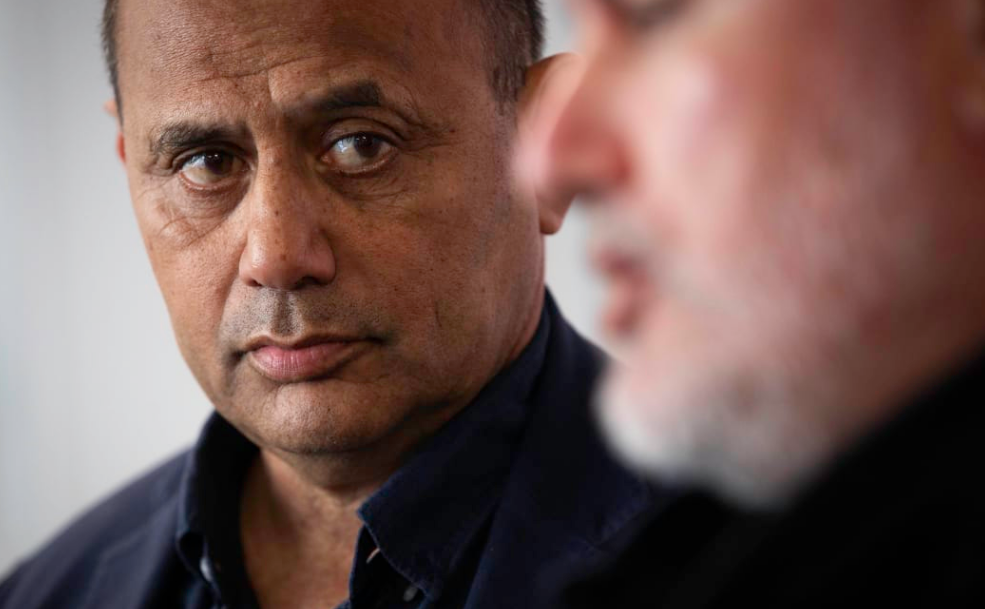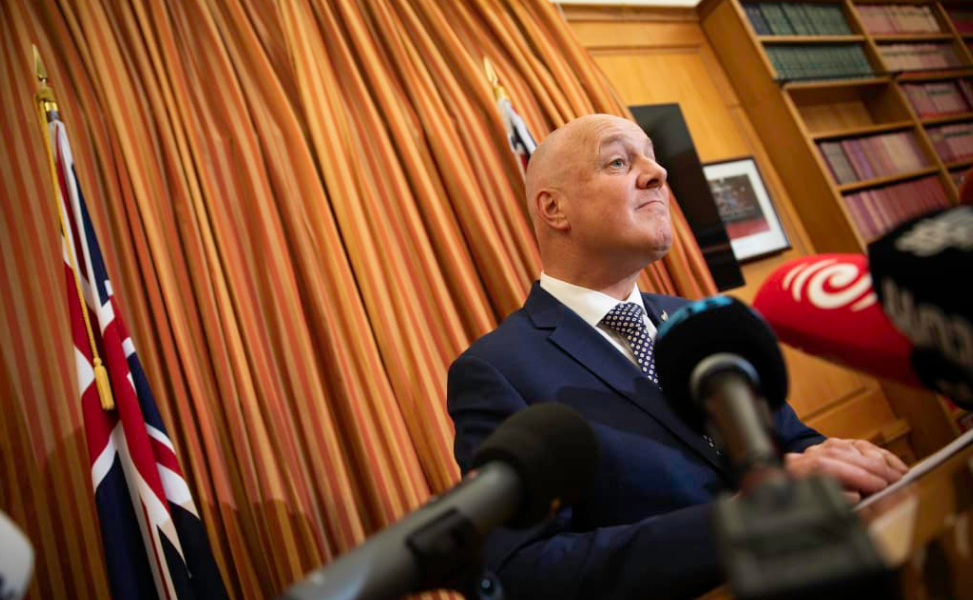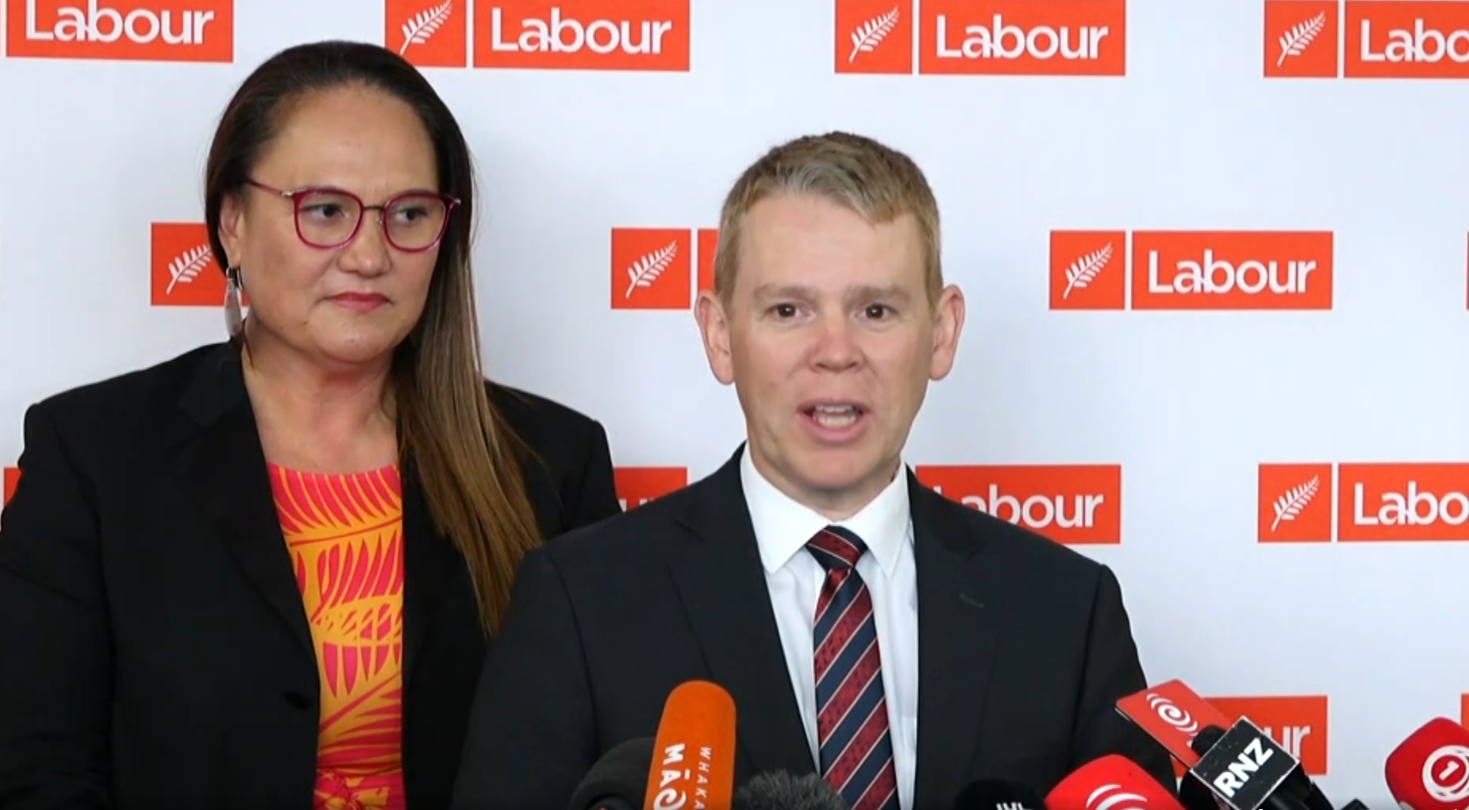
Jackson and former Labour deputy leader Kelvin Davis spoke to media on Tuesday afternoon during the party's caucus meeting where Chris Hipkins was confirmed to remain the party's leader, with former deputy prime minister Carmel Sepuloni taking over as deputy leader.
The party's rules require a vote on the leadership within three months of an election, but with Hipkins expected to retain it and MPs stressing the need for stability and unity after their dismal election result the vote was held less within a month.
Labour have just 34 seats in Parliament.
Davis confirmed he had made the decision to step down as deputy, and to leave Parliament before the next election in 2026.
"Well look, I've done six years I just decided it was time to continue to grow the leadership within the caucus ... give someone else a chance," he said.
"This will be my last Parliament that I'll be part of, it was just the decision that I'd made: I don't know if you all know that I became a grandfather in the last two weeks, so you have other priorities [when that happens]."
He had previously said he would leave politics if he lost Te Tai Tokerau - which he did, to Te Pāti Māori's Mariameno Kapa-Kingi by 517 votes in the final count.
He clarified that he had never said he would leave immediately.
"I'll evaluate things over the summer ... at this stage we've got a still got the largest Māori caucus and in Parliament and you know, with Willie and I we know that we need to continue to build and help the party to become a strong opposition."
Staying on to fight
Davis and Jackson - who had also considered leaving - both said they were motivated to stay because of the need to fight ACT's proposal for a referendum on the Treaty of Waitangi.

"The Treaty referendum - if that happens, then it's going to require me to stay around and I think Kelvin has to stay around for a while too," Jackson said.
Davis backed that up, saying it was "one of the big things".
"We've been looking at what has been said on the campaign around referendums about fiddling with the principles of Te Tiriti o Waitangi. And, you know, that is a real concern. We heard a lot of concern from Māoridom throughout the campaign around that.
"What gives them the right to unilaterally tutū with the Treaty, when there are two partners ... two groups that signed it, and yet one group is making a unilateral decision?"
Jackson said he was hearing from some they were ready to "go to war" over the matter.
"Be very clear, I don't want any disruption or violence. I'm not advocating for that at all. But I do understand our people's frustration and anger if this was to go ahead ... I'm saying to you what Māori have been saying to me ... they're saying 'This is not going to happen, we will do anything that has to be done to stop that referendum'.
"I'm just giving a warning: I work amongst our people ... who will go to war for this, war against [ACT leader David] Seymour and his mates."
He said people like Sir Graham Latimer and Sir Tipene O'Regan had been just two examples of people who mortgaged their homes to seek a resolution to Treaty breaches through the courts.
"They won through that through the English system. This is such an affront - if that referendum comes forward, I would imagine to be hell to play (sic) if it goes through."

With Luxon now negotiating with both ACT and New Zealand First to form a government, the full level of his opposition to the idea - which ACT has previously said was a "bottom line" should soon become clear.
Davis said he was interested to see if the new government would even attend Waitangi celebrations in February.
"We've put a lot of effort in over the last six years to make sure it was a dignified occasion, that we spent a lot of time there engaging with people on the ground - Māori on the ground - up in Tai Tokerau, so it'll be interesting to see how that goes.
"The last thing I want is for the dignity of the occasion, and the dignity of Ngāpuhi, to be diminished by the new government."
He said if National did attend - either at the top marae, or Te Tii Marae as Labour's Māori caucus had - they would follow and ensure people were respectful.

Labour lost six of the seven Māori seats to Te Pāti Māori this election. Jackson put this down partly to strategic voting, saying many of those voting in the Māori electorates had given their party vote to Labour.
Davis acknowledged there may be some disappointment within Māoridom at hearing today about the lack of a Māori deputy leader for the party.
"Quite possibly, but, you know, like, I made the decision, I think the decision is in the best interests of the party to continue to grow and develop leadership.
"I'm not gonna stand again in the next election in 2026, I didn't think there was really much sense me being there [in the deputy leadership] ... it would be better to bring in somebody [new]."
Jackson said they were united in support of Sepuloni.
"We're really proud of the work that she's done ... absolutely united, she's been a terrific deputy prime minister and so it's just automatic that she becomes the [deputy] leader.
"We're also aware of the male-female setup, which is really important. You know, it's important for Carmel to be there. Also, we're very supportive of our Pasifika colleagues."
He said Māori had been in "pivotal" positions in the party, "and I'm sure we're going to still be in pivotal positions over the next few years".












